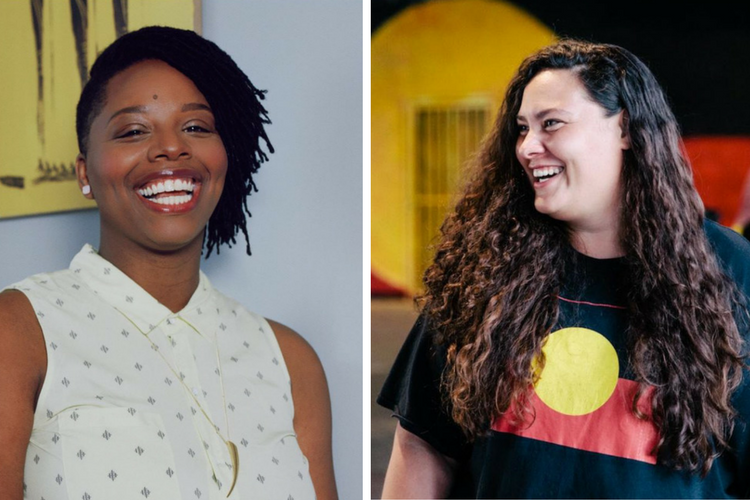BLM’s Patrisse Cullors & Aboriginal activist Latoya Rule: ‘We want to re-imagine humanity’
For the Guardian Australia’s ‘Behind the Lines‘ podcast, Patrisse Cullors, co-founder of Black Lives Matter speaks with Aboriginal activist Latoya Aroha Rule.
As the Sydney Peace Prize is awarded to the Black Lives Matters movement, Cullors discusses the formation and philosophy of the movement while Rule explains how the group resonates with Aboriginal and Torres Strait Islander people in Australia, and how it has influenced their campaigns for Indigenous justice. Latoya’s brother Wayne Morrison died in custody in South Australia last year.
Latoya and Patrisse speak about the problems their communities face with policing, surveillance and jailing; the harmful stereotypes that see Black and Aboriginal people as deviant, criminal, violent or needy; how the movement’s campaign #SayHerName stood in support and solidarity with the family of Ms Dhu, who was killed in 2014; and their resolve to use Black Lives Matter as a global intervention to change culture, affirm black humanity, reimagine what a world looks like where all black lives matter, and build the power needed to create change.
For me, seeing the Black Lives Matter movement coming up was quite refreshing and exciting for where we can take it here in Australia. As Aboriginal people we identify as black people as well, so I love that it crosses over boundaries and tries to incorporate what I would call indigenous and native voices. This is very important for our movement against colonial white patriarchy and genocide in Australia. It’s really important to adopt a little bit of the Black Lives Matter movement for our struggles as well.”
Latoya Aroha Rule
The conversation about our movement is global: We have to talk about our global movement. We have to talk about our relationship to Black folks in Brazil, we have to talk about our relationships to Aboriginal and Maori folks, we have to talk about our relationships to Afro-Latino folks who are undocumented. And we are. We are doing that both in or theory and our practices. An that’s powerful. It’s powerful when you get to be a part of a movement that’s trying to make global connections.
Patrisse Cullors
This Podcast was published by The Guardian on May 23, 2017.
Read more about Latoya Aroha Rule’s journey here.


